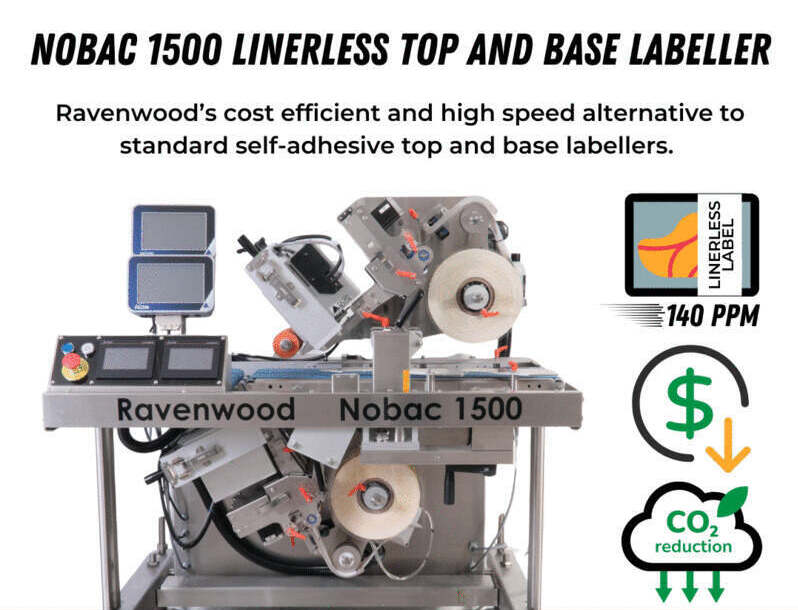Ravenwood’s latest update transforms Nobac 1500 labeller into game-changer

Ravenwood Packaging is supplying its new labeller as a standalone unit with an integrated conveyor.
This applicator, designed for high-speed modified atmosphere packaging (MAP) in the meat, fish, and fresh produce industries, is capable of printing and applying both top and base labels, or applying labels solely to the base.
The 1500 top and base labelling machine is an air-free operation that not only cuts down on energy costs but also minimises expenses related to wear and tear on components.
The labeller has been fully tested to handle linerless materials that are 25% more economical on average compared to traditional self-adhesive labels.
Dave Mathison, Ravenwood’s Scotland and Ireland sales manager noted the 1500’s capability “because it operates without the need for compressed air and can handle lower gsm materials.”
Mathison added: “We are continuously developing new materials, with a focus on further reducing costs, including those with improved water resistance.”
For standard MAP packs, the 1500 achieves faster labelling speeds, reaching up to 140 packs per minute – crucial for MAP in maintaining a steady supply chain in, for instance, the meat and fish processing industry.
Delays in labelling can hinder an entire operation across multiple food processing machines, resulting in inefficiencies.
Mathison said the new labeller offers considerable CO2 savings and can be integrated with a weigh price labeller, optimising production throughput, efficiency, and flexibility for catchweight, fixed weight, or average weight labelling – ensuring products are retail-ready.
The 1500, along with Ravenwood’s entire range of Nobac machinery not only provides faster labelling application speeds and significant cost savings but also delivers substantial CO2 reductions.
Linerless labels adhere to themselves on the reel using corresponding strips of adhesive and silicone, eliminating the need for backing paper so reducing material consumption.
Backing paper generated from self-adhesive label application is typically sent to landfill. Subsequently, linerless labels are classed as recyclable and mitigate these issues by eliminating the need for label liner altogether. Collectively, these factors contribute to environmental benefits and significant CO2 savings, the company said.
Related content
Source: foodanddrinktechnology.com

